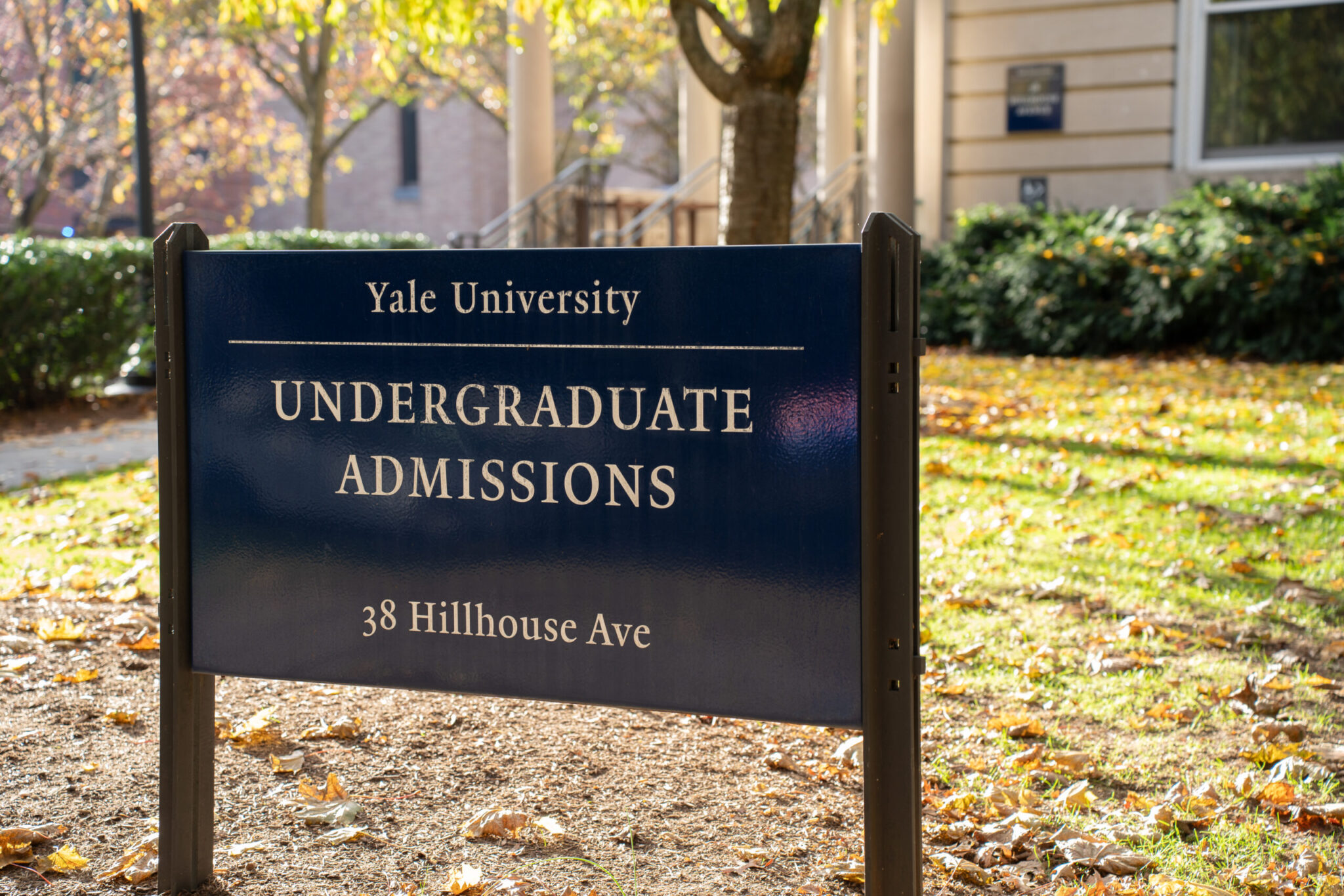One year after SCOTUS ends affirmative action, Yale students reflect on new admissions policies, future of diversity in higher education

Ellie Park, Photography Editor
Two months ago marked the one year anniversary of the Supreme Court’s decision to overturn affirmative action, barring admissions officers nationwide from considering race during the college admissions process. Today, Yale students remain divided on the court’s ruling.
On June 29, 2023, the court struck down affirmative action in response to cases filed against Harvard and the University of North Carolina at Chapel Hill. In its majority decision, the court argued that race-based considerations in college admissions violated the 14th Amendment’s equal protection clause, ending decades of legal precedent that allowed colleges and universities to consider race as one of many factors in the college admissions process.
Since the court’s decision, Yale has made several updates to their admissions policies. According to a 2023 statement from Dean of Yale College Pericles Lewis and Jeremiah Quinlan, dean of undergraduate admissions and financial aid, Yale remains committed to diversity and inclusion while fully complying with the Supreme Court’s ruling on affirmative action.
“Today’s rulings will not change our commitment to consider each applicant as a multi-faceted individual,” Lewis and Quinlan wrote in a joint statement after the court’s decision was released. “Yale’s whole-person review process is one of the College’s great strengths and has yielded student and alumni bodies that reflect the enormous depth and breadth of humanity.”
Following the decision, Yale launched the Office for Educational Opportunity, created to support first-generation, low-income students through new programs to promote diversity and belonging at Yale. Additionally, Yale also made efforts to expand its ambassador program, which sends Yale students to their home areas to engage with prospective students. The program aims to increase geographic reach, especially in rural and small towns.
Furthermore, the University revised its admissions process so that while prospective students can still self-report race and ethnicity on the Common Application, their responses will not be accessible by admissions officers involved in the process. The data will only be used post-selection to inform cultural centers and for reporting purposes.
In February, the University also reinstated its standardized testing requirement for undergraduate admissions, after a temporary suspension during the COVID-19 pandemic. Starting with the 2024-25 admissions cycle, Yale College will implement a “test-flexible” policy requiring applicants to submit ACT or SAT scores, with the option to include IB and AP exam results. This policy aims to provide students with more opportunities to showcase their academic strengths, according to the admissions office.
“We are in a dynamic moment for standardized testing,” Quinlan told Yale News in February. “There are efforts to design and roll out new tests, and there is more energy for developing alternatives to the SAT or ACT than ever before. Although our research on the predictive power of the four tests we will accept next cycle is compelling, I like that our policy is flexible by design and can easily accommodate future additions to the list of required scores.”
Despite its intentions, students expressed concerns with the new testing policy, with some arguing that it created new forms of unfairness in the admissions process. However, others felt that the decision brought a much needed emphasis on merit and fairness in college admissions.
Jack Batten ’27 told the News that while he agreed with the Supreme Court’s decision, he has no problems with affirmative action as a whole, seeing it as an “experiment” that served a meaningful step toward parity.
Mason Mackie ’27 expressed a deep concern about the institution’s legacy and the urgent need for more substantial efforts towards inclusivity and reparative justice.
“It’s an ironic coincidence that the same year the affirmative action decision was repealed, Yale released a book recognizing the institution’s inextricable ties to slavery,” Mackie told the News.
Mackie, who is Black, told the News he was “appalled” when he learned about Yale’s role in disbanding what would have been the nation’s first college for Black students and its commemoration of Confederate soldiers.
Sabrina Guo ’27 told the News that although she disagreed with the execution of affirmative action, she believes that it’s still the responsibility of universities to promote diversity and inclusion while ensuring that no one is left out for reasons they can not control.
“I think moving forward, it will be up to universities to find innovative, effective ways to continue supporting marginalized groups while ensuring that opportunities are accessible to all, and maintaining integrity and upholding the value of merit.”
The Office of Undergraduate Admissions is located at 38 Hillhouse Ave.







